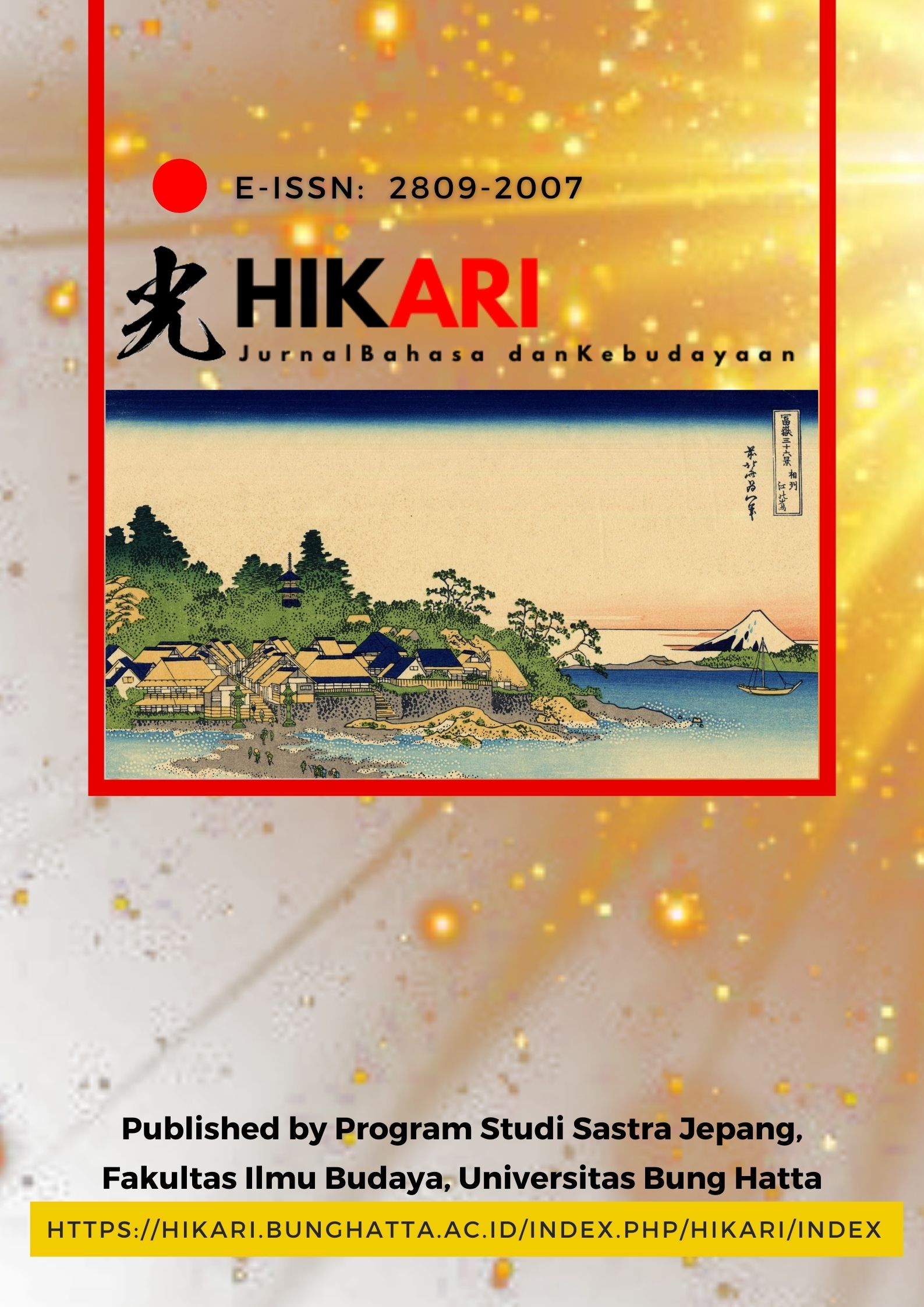THE RHETORIC AND COMPONENTS OF LOVE IN THE LYRICS OF A JAPANESE SONG ABOUT LOVE BY MAJIKO
DOI:
https://doi.org/10.37301/hikari.v2i2.31Keywords:
Retorika, Komponen Cinta, StilistikaAbstract
Rhetoric can be defined as the art of using impressive words both orally and in writing. Rhetoric is usually created from the expression of thoughts and feelings through language that specifically shows the soul and personality of the writer. This study aims to explain the use of rhetoric and the components of love contained in the lyrics of a Japanese song about love by Majiko. The research method used is descriptive. The results of the research are rhetoric as follows: rhetoric of meaning, namely metaphor, simile, personification, hyperbole, oxymiron and rhetorical questions. Form Rhetoric namely Repetition, Parenthesis and Reticence. In each data found components of love namely intimacy, passion and commitment.
References
Arikunto, S. (2013). Prosedur Penelitian Suatu Pendekatan Praktik (Revisi). PT. Rineka Cipta. Jakarta
Kartika, D. (2017). Analisi Konstraktif Kata Sifat (Keiyoshi) Bahasa Jepang dan Bahasa Indonesia ditinjau secara Gramatikal serta Pengajarannya. Universitas Bunghatta. Padang
Kenichi, S. (2003). ?????????. Paperback Shinsho. Japanese
Keraf, G. (2009). Diksi dan Gaya Bahasa. Gramedia Pustaka Utama. Jakarta
Mahsun. (2017). Metode Penelitian Bahasa. In Fakultas Adab dan Humaniora UIN Sunan Ampel Surabaya (kedua). PT RajaGrafindo Persada
Musthofa, R. M. (2022). Analisis Penggunaan Gaya bahasa Pada Lirik Lagu ?? Dalam Album U ( 2021 ). Universitas Negeri Surabaya. Surabaya
Sternberg, R., & Weis, K. (2006). The New Psychology of Love. Yale University Press.
Sugiyono. (2018). Metode Penelitian Kuantitatif, Kualitatif, R & D. CV Alfabeta
Wicaksono, A. et al. (2018). Tentang Sastra?: Orkestrasi Teori dan Pembelajarannya (A. Wicaksono, Emzir, & S. Rohman (eds.)). Garudhawaca. https://www.google.co.id/books/edition/Tentang_Sastra/cwhTDwAAQBAJ?hl=id&gbpv=0

Downloads
Published
Issue
Section
License
Copyright (c) 2023 Hikari: Jurnal Bahasa dan Kebudayaan

This work is licensed under a Creative Commons Attribution-ShareAlike 4.0 International License.





